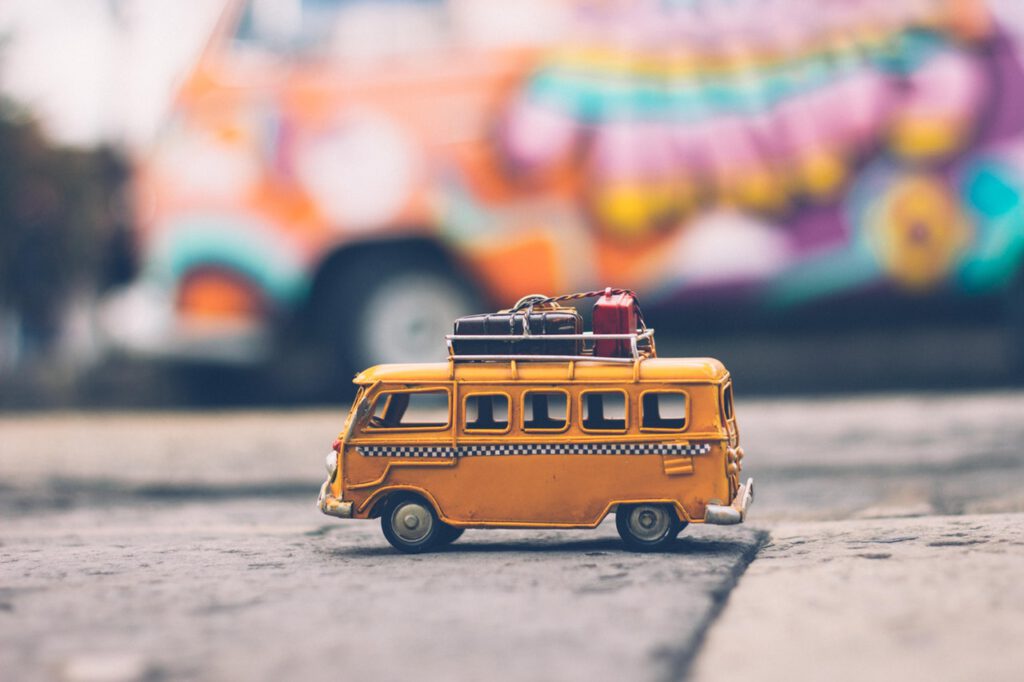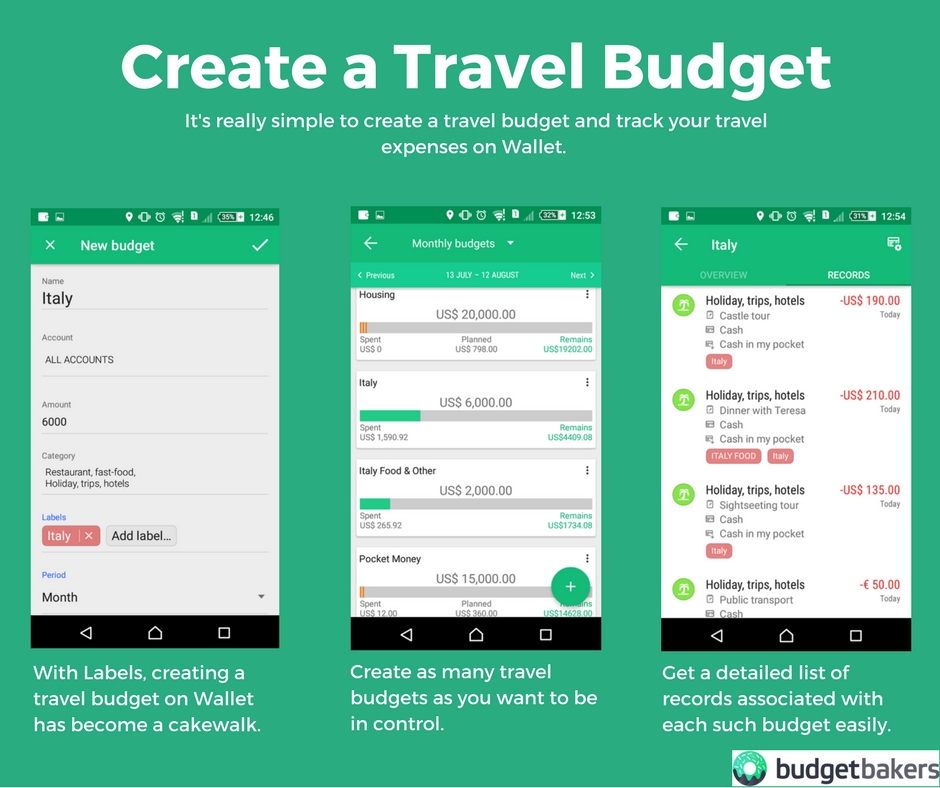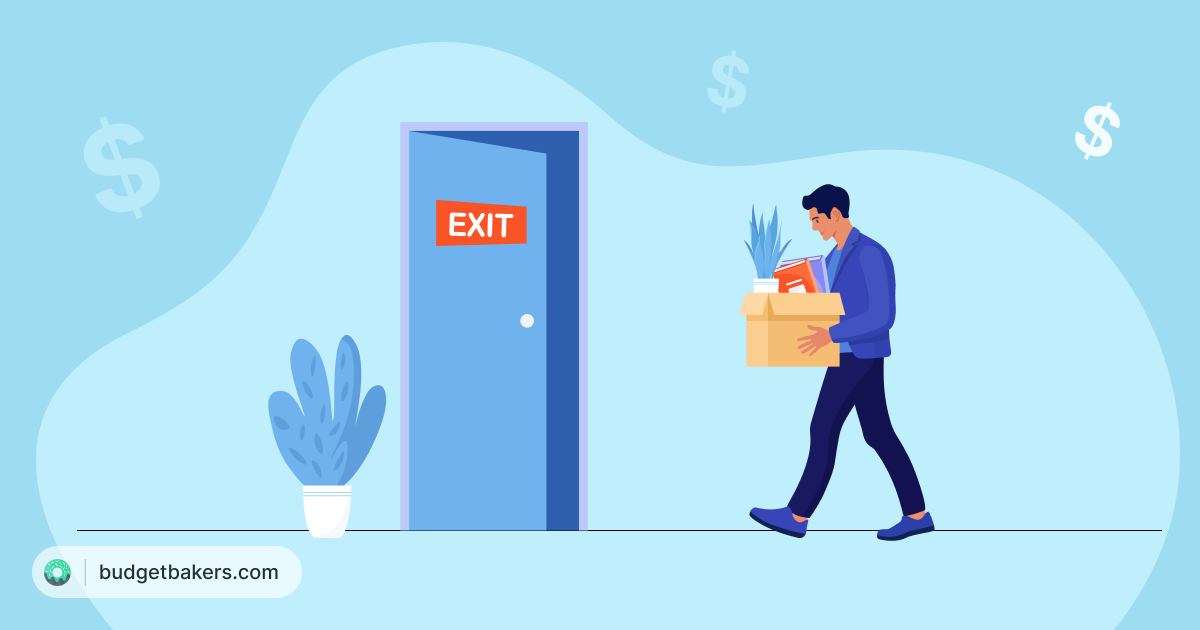So you’ve decided on your dream summer destination and are all set to take off? Or, are you still finalising plans, booking stuff and looking forward to your upcoming holidays? Or, are you just saving up for your much-needed vacation? Whatever may be the case, you need a travel budget! Period.
But why, you may be wondering! Some of you may be really good with your money and would be sure not to overspend while vacationing. And, some others may not want to waste their hard-earned holidays to stress over their spending! No matter what stage of travel planning you may be in or what your idea of handling money may be, a travel budget will only help you plan better and enjoy a stress-free holiday.
Let’s be honest. How many times have you returned home after a holiday and regretted the way you spent money? How many times have you wished you had a little more time and money to tick off a nearby place on your way? Let’s say, more than once?
All of us want to get the maximum value for the money we spend while travelling. We also want to have a nice time without the stress of constantly thinking about money. And, this is why you need to have a plan… and a TRAVEL BUDGET!
A travel budget lets you enjoy your trip by taking out the stress of constantly thinking about money.
Who needs a travel budget?
Anyone who wants to travel, is travelling or will be travelling.
If you’re still in the planning stage, a travel budget will help you make a more realistic travel plan. If you are just saving for a trip, a travel budget will act as a guide to set a realistic savings goal. And, if you’re ready to take off, a travel budget will help you make the best spending choices on the go.
Creating a travel budget is not in the least complicated.
But before you go any further…
Understand that your travel budget is a guide, not a restrictive set of rules. Accept that you’re going to estimate things based on the information you have and that you may make mistakes while doing so. And, don’t hang on to the budget like it’s gospel. Remember…
A good travel budget is one that is flexible.
So are you ready to get started?
Here you go!
7 Simple Steps To Create A Realistic Travel Budget
Think of how you’ll get there
The major expense you’ll incur while travelling is most often the cost of actually getting to your destination. Depending on where you plan to travel to, your choice of transportation will vary. But start your research and look at various options available to you and arrive on an expected figure depending on your choice.
In this step, determine the costs of taking a flight, bus, train, rental car or cruise ship to your destination. If you plan to travel to more than a single place, estimate how much the rates for these trips will be as well. Add that up and write it down.
Our top tip: Never book a ticket without comparing prices. There’s always a good deal available if you look around. Try fare comparing sites like Skyscanner, GoEuro and Kayak to help you make the best choice and get the cheapest tickets available.
Think of where you’ll be staying
The next big chunk of your travel expense will be your accommodation. Research about various lodging options available at the destination. Each of us look for different things when we travel, so look out for the prices of the experience closest to what you want to make a good enough estimate. For instance, if you’re a budget traveller, you should be looking at hostels, budget hotels or shared living options.
Our top tip: Try to look for accommodation facilities that offer at least one meal with the stay. Or, if you are on a really shoestring budget, look out for hostels or lodging with common kitchens.

Think of how you’ll be moving around
Every destination is different, so is every traveller. So the next step is to think about and find out what’s the best way to move around once you’ve reached your destination. Some of you may like to explore your destination by foot, others by cycle, public transport or taxis. Whatever be the best available option that suits your tastes, arrive at an estimate of how much you would need to set aside to freely move around the place you’re in.
Our top tip: Look out for public transport ticket options. It is very likely that you might find cheaper tickets if you book them in advance or book them for a longer period of time. In case, you need to book taxis, research about the best services that locals use on Quora or Facebook Groups to avoid being ripped off.
Think of what you’ll be eating
No, we’re not asking you to list out all what you plan to eat during your two-week long trip. Instead, have an idea of what a meal costs in the places you’ll be travelling to. Some people already have a number in mind on how much they would spend on food in a day. It is best to arrive at this number with some research. Online resources like Lonely planet travel guides, travel websites like Trip Savvy or blogs like Nomadic Matt are good places to start looking. Or try out apps like Zomato and TripAdvisor to find latest, updated prices.
If you have no time to research, then, budget a minimum of at least 2 to 2.5 times the price of your accommodation per night for one day’s worth of food. This rule of thumb works well for budget travel.
Our top tip: If you’re on a longer trip, try to cook at least one meal a day. You’ll be surprised how much money you would save. Also, always opt for natively consumed and seasonal items. Or, try meeting up with locals and eating home-cooked food through meal sharing apps to get an affordable taste of local culture.

Think of what you’ll be doing
Have at least a vague plan on what you intend to do for the large part of your trip. For instance, chilling by the beach or a hiking trip would be different from a city tour or a music festival crawl, cost wise. So depending on this, know what major activities you’ll be spending on during the trip. Some people make a list and prioritise them according to time and cost. Go ahead and do whatever works for you. What is important is that you have some idea about the entry fees or cost of these attractions or activities.
Our top tip: Most often, by booking some activities in advance can save you money and sometimes even can help you skip long lines at tourist attractions. Many countries have specially designed tourist cards catering to different interest groups (like for art lovers, sports enthusiasts etc) with special discounts and offers on such activities.
Think of what you’ll be buying
Gifts and souvenirs are a huge part of travel. Most often than not we like to bring back a little something from the places we visit. You may not be able to have a clear picture about how much things would cost unless you get to the destination, but keep aside some money to be spent on things you want to buy while travelling.
Our top tip: Making a list of people for whom you want to pick up gifts for will save you time, help you stay organized and stop you from overspending or buying things on impulse. You could use a simple notepad or if you don’t want to carry an additional weight, just use Wallet’s Shopping Lists and create a digital list, ticking off names once you buy each item. Simple and effective, isn’t it?
Think of emergencies
So why do we have a plan? To be prepared to face come what may. Then wouldn’t it be foolish to not budget for unforeseen circumstances or emergencies? This is the final step or item in your budget. Keep aside some money for things you forgot to budget for, medical emergencies, extra expenses, or even happy accidents, like an impromptu event you may be invited for, while you’re on the road.
Our top tip: If you aren’t sure how much to put aside, two to three days worth of living expenses per person would be good to start with.
How to create a travel budget on Wallet
Now that you’ve arrived at an estimated total amount you plan to spend on your trip, you can make the process of sticking to your budget so much more easier by using Wallet.
Combining two of Wallet’s most powerful features, Budgets and Labels, creating and sticking to your travel budget will be a cakewalk!
Labels allow limitless customizations which will help you manage your money in a way that makes sense to you.
Say, for instance, you’re planning a trip for two to Italy. You’ve gone through the steps we listed above and arrived at a figure of $6000. Create a travel budget with this figure and with a label called, say, Italy. Now, every time you spend money, you just need to label it Italy for it to be counted in this budget. In this way, you can easily see how you are faring with regards to the budget you set for yourself. Wallet will also forecast your spending and alert you if you need to make changes, thereby making it easier than ever to stick to your budget better.

If you want to dig in a bit more, you could create different budgets for different categories of expenses you want to track on the trip, say food and daily expenses, or just taxi (helps if you would want to claim it back later) and so on. Just create a new label for it and create a Budget with the respective label.
You could also create different budgets for each place you’ll be visiting on a long trip. The choices are limitless. Wallet gives you tools that can be customized as you wish to simplify the process of money management for you.
And, if you don’t want to track your expenses on the go, but still want to compare your expenses with your budget, you could just Import your transactions once you’re free during the trip or after the trip as per convenience.
Coming up with a realistic travel budget is the first and basic step towards planning a great vacation. It gives you a clear idea of what exactly you’ll be able to afford, sets guidelines for how much you need to save for and lets you be in full control of your money. So get a budget and take that vacation now!
Over to you…
Do you create budgets before you travel and track your expenses while on the road? What are your tips for a financial stress-free vacation? We would love to know. Share your ideas, thoughts and suggestions with us in the comments section below.



